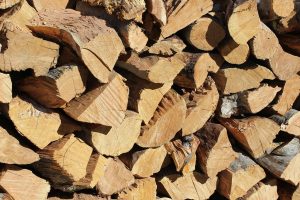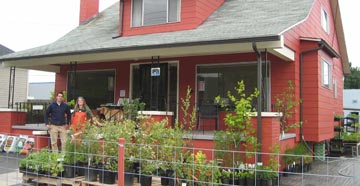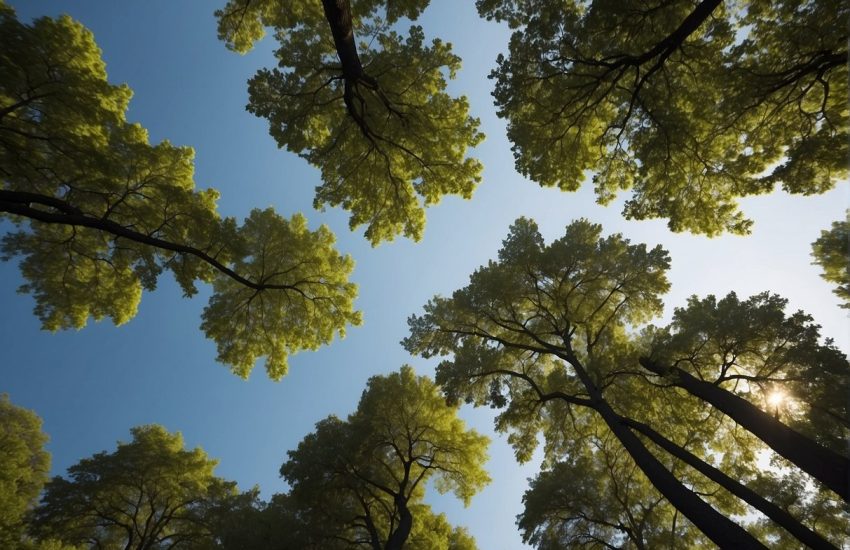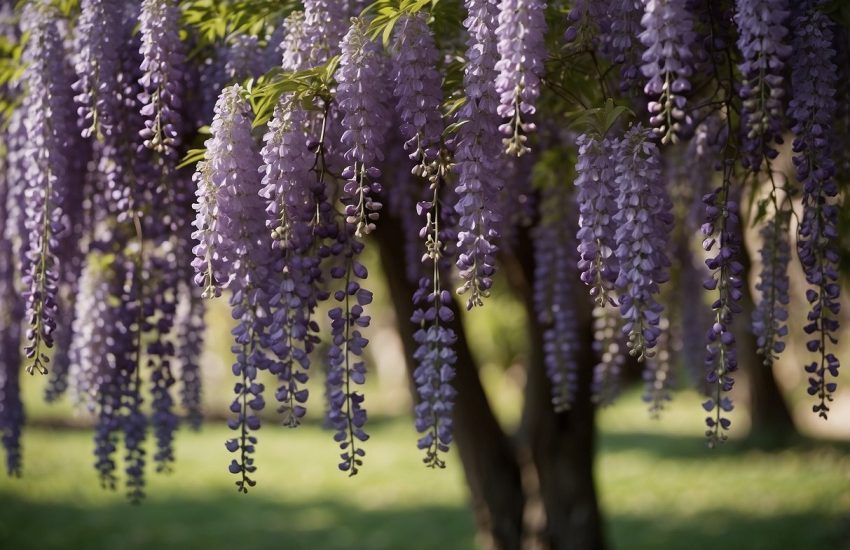Is Juniper Good for Firewood – Burning Questions About Juniper
Last updated: February 10, 2026
Juniper is an evergreen shrub common in many parts of the world. It is often used as an ornamental plant, but it can also be used for firewood. Juniper is a good choice for firewood because it burns hot and slow. This makes it ideal for wood-burning stoves and fireplaces because it produces a long-lasting fire. Juniper also has a strong, pleasant aroma when burned, making it a good choice for people who enjoy the smell of wood smoke. However, Juniper can be difficult to split and light, so it is important to make sure that you have the proper tools on hand before you start your fire. But if you are looking for high-quality softwood that will burn hot and slow, then Juniper should be at the top of your list.

Common Characteristics of Juniper
Junipers are bushy, evergreen shrubs or small trees with dense, prickly foliage. They can range in size from a few feet tall to more than 30 feet tall, and they are often found in groups or clusters. The leaves of junipers are scale-like and arranged in whorls of three. The berries of junipers are fleshy and blue or violet in color. When crushed, juniper berries release a fragrant, resinous odor. Juniper wood is pale yellow or light brown and has a fine, even grain. It is relatively soft and lightweight but also strong and durable. Juniper firewood burns hot and fast, making it ideal for starting fires. When choosing juniper firewood, look for logs that are dry and free of rot or mold. If the wood is too green or damp, it will be difficult to start a fire. However, if the wood is too dry, it will burn too quickly and produce little heat. The best juniper firewood is somewhere in the middle – not too dry and not too green. When shopping for juniper firewood, keep an eye out for these physical characteristics to ensure that you select the best possible logs for your needs.
Types of Juniper that can be used for Firewood
1. Common Juniper
The most common type of Juniper used for firewood is the Common Juniper (Juniperus communis). The wood of this tree is dense and burns hot, making it an excellent choice for fires. Common junipers are found throughout Europe and Asia and typically grow to be between 15 and 30 feet tall.
2. Siberian Juniper
Another type of Juniper used for firewood is the Siberian Juniper (Juniperus sibirica). The wood of this tree is also dense and burns hot, making it a good choice for fires. Siberian junipers are found in Siberia and parts of China and typically grow between 20 and 40 feet tall.
3. Rocky Mountain Juniper
The Rocky Mountain juniper (Juniperus scopulorum) is another type of Juniper that can be used for firewood. The wood of this tree is not as dense as the other two types of junipers, but it still burns hot and makes a good choice for fires. The low density makes it easier to split but produces more sparks and smoke. Rocky Mountain junipers are found in the Rocky Mountains in North America and typically grow between 30 and 50 feet tall.
4. Alligator Juniper
Alligator juniper is a type of Juniper native to the southwestern United States. The wood of this tree is dense and hard, making it ideal for use as firewood. Alligator juniper typically has a low BTU rating, meaning that it produces a minimal amount of heat compared to other juniper varieties.
5. Western Juniper
This juniper variety has the highest BTU rating of all varieties in this list producing 26.4 million BTU per cord. The wood is also the densest of all the junipers, making it difficult to split. Western Juniper is found in the western United States and typically grows between 30 and 50 feet tall.
Seasoning Juniper Firewood
Juniper is a lot like other softwoods when it comes to seasoning. The key is to cut it to the desired length and then split it into smaller pieces to help speed up the drying process. Next, stack the wood in a dry, well-ventilated area out of direct sunlight. Once the wood is dry, it will be lighter in color and weight and produce less smoke when burned. Use Juniper firewood within one year of cutting it for the best results. Seasoned Juniper firewood can be used for any type of cooking, but it’s especially well-suited for smoking meats and fish. The smoky flavor it imparts is both unique and delicious.
Does it Smoke?
Juniper wood produces smoke when burned, and the amount of smoke depends on the moisture content of the wood. Wetter wood will produce more smoke, while drier wood will produce less. The smoke from juniper wood has a distinct smell that many people find pleasant. However, it can also be irritating to the eyes and lungs. If you are burning juniper wood in a fireplace or wood stove, open a window or door to vent the smoke outside. You may also want to avoid inhaling the smoke directly, as it can cause respiratory irritation. If you are sensitive to smoke, you may want to consider using another type of wood for your fire.
Resin Content
Resin is a sticky, aromatic substance secreted by the tree to heal wounds and ward off insects. When the tree is cut down and used as firewood, the resin helps to produce a hot, long-lasting fire. Juniper firewood is known for its high resin content. In fact, Juniper is one of the most flammable woods available, and it’s often used in campfires and bonfires. However, the high resin content makes Juniper smokey and aromatic when burned. So you may want to steer off this wood if this is going to be an issue for you.
Does it Spark?
While it does produce some sparks when burned, it is not as prone to sparking as other types of wood. This makes it a good choice for backyard fires, campfires, and fire pits. However, Juniper wood does burn hot and quickly, so it is important to keep a close eye on the fire when using this type of wood.
Heat Output and Efficiency
BTU, or British Thermal Units, is a measurement unit that refers to firewood’s heat output. In general, the higher the BTU rating, the more heat the wood will produce. When it comes to Juniper firewood, it is considered to be a “medium” wood in terms of BTU output. Most Juniper varieties will have a BTU rating of between 21 and 26 million BTUs per cord. In terms of efficiency, Juniper is considered a “fast-burning” wood, meaning that it burns quickly and produces a lot of heat. However, it also has a relatively low density, which means that it doesn’t last as long as some other types of firewood.
Creosote Buildup
Creosote is a natural byproduct of combustion and can build up in your chimney over time. If you burn juniper firewood, you may produce more creosote than usual. Juniper has a high sap and resin content and releases much vapor when it burns. This means that more of the tar from the smoke will condense on the walls of your chimney, where it can harden into creosote. While creosote itself isn’t necessarily harmful, it can be a fire hazard if it builds up too much. If you notice an increase in creosote production after switching to juniper wood, be sure to have your chimney cleaned more often. In addition, you should always use a stove screen to prevent sparks from flying out of the fireplace and igniting the creosote.
Pros
- Juniper is a durable wood.
Juniper is a very dense wood, and as such, it is highly resistant to rot and insect infestation. This makes it an ideal choice for firewood, as it will last for a long time when properly seasoned.
- Juniper burns hot and clean.
Another advantage of juniper wood is that it burns hot and clean. This means that you will get more heat from your firewood, and less soot will be produced. This can be beneficial if you are trying to avoid indoor air pollution.
- Juniper has a pleasant smell.
In addition to being durable and efficient firewood, Juniper also has a pleasant smell when burned. This can make your home feel more inviting and comfortable during the colder months.
- Juniper is easy to split.
Another advantage of juniper wood is that it is relatively easy to split. This can save you time and effort when gathering firewood, as you won’t have to spend as much time chopping it into smaller pieces.
- Juniper is readily available in many areas.
Finally, juniper wood is relatively plentiful in many parts of the country. This means that you should be able to find it at your local hardware store or lumberyard without too much difficulty.
Cons
- Juniper is a Soft Wood
One of the primary disadvantages of using Juniper for firewood is that it is a softwood. This means it will ignite easily but also burn quickly and produce less heat than harder woods such as oak or maple. Additionally, softwoods produce more sparks than hardwoods, which can be a safety hazard.
- Juniper is Difficult to Split
Another disadvantage of using Juniper for firewood is that it is difficult to split. This is because the wood is very fibrous and tends to twist and warp when split. As a result, it can be time-consuming and frustrating to try to split juniper logs into pieces that are small enough to use in a fireplace or wood stove.
Bottom Line
As you can see, Juniper is a great softwood to use for your next fire. Not only does it burn hot and generate plenty of heat, but it also has a pleasant aroma that will make your fireside experience even more enjoyable. It’s also easy to find and relatively affordable, making it a popular choice for campers and homeowners alike. If you need some good quality firewood this winter, consider using Juniper.
Juniper Firewood: Practical Tips for Home Use
Splitting and Processing Juniper
Juniper wood can be challenging to split due to its twisted, stringy grain. These tips help:
- Split while green (freshly cut) — dry juniper is harder to split
- Use a splitting maul rather than an axe for larger rounds
- Rounds with a straight grain split more easily; avoid rounds with lots of knots
- Small-diameter pieces split into kindling very well — juniper ignites faster than most hardwoods
Seasoning Time
Juniper should be seasoned (dried) for at least 6-12 months before burning. Well-seasoned juniper:
- Burns hotter and cleaner than green wood
- Produces less creosote buildup in the chimney
- Is lighter and easier to handle
- Has moisture content below 20% (test with a wood moisture meter)
Creosote Considerations
Juniper has a relatively high resin content compared to true hardwoods. This means:
- Burning unseasoned juniper produces significant creosote buildup
- Always burn well-seasoned juniper and maintain hot fires (avoid smoldering)
- Clean your chimney annually if juniper is your primary firewood
- Mixing juniper with low-resin hardwoods like oak can reduce creosote accumulation
Key Takeaways
- Juniper is good firewood — it burns hot, ignites easily, and has a pleasant aroma
- BTU output of juniper is moderate (lower than oak, higher than pine)
- Season juniper for at least 6-12 months before burning
- Rocky Mountain and Western Juniper are most commonly harvested for firewood in the US
- High resin content means more creosote — clean your chimney annually
- Juniper makes excellent kindling even if you prefer hardwood for longer burns
Frequently Asked Questions
Is juniper good firewood compared to oak?
Juniper burns hotter per volume than most softwoods but produces less heat than hardwoods like oak or hickory. Oak has a BTU rating of approximately 26-28 million BTU per cord; juniper comes in around 18-24 million BTU per cord depending on the species — comparable to moderate-quality hardwoods. Juniper’s advantage is its ease of ignition and aromatic qualities. Many experienced wood-burners use juniper as a quick-starting wood to get a fire going, then add oak or other hardwoods for a longer-lasting burn.
Does juniper wood pop and spark when burning?
Yes — juniper is known for popping and sparking, especially when burned in an open fireplace. This is due to its resin content. Always use a spark screen with juniper in open fireplaces to prevent sparks from landing on carpets or floors. In sealed wood stoves, this isn’t a concern. This popping quality, combined with the pleasant juniper aroma, makes it popular for outdoor fire pits and campfires where the visual effect is part of the experience.
Can you burn cedar and juniper together?
Yes — Eastern Red Cedar (Juniperus virginiana) is actually a juniper, not a true cedar. All junipers have similar burning characteristics, so burning them together is perfectly fine. True cedars (Cedrus species) are less commonly found in the US and are similarly aromatic but rarely used as firewood. The main consideration remains the same: season well before burning, and clean your chimney regularly when burning any high-resin wood.
Related guides: are fig trees evergreen?, Vine Maple growing guide, and evergreen trees that keep leaves year-round.

Looking for a nursery that carries native trees?
Browse our native plant nursery directory


